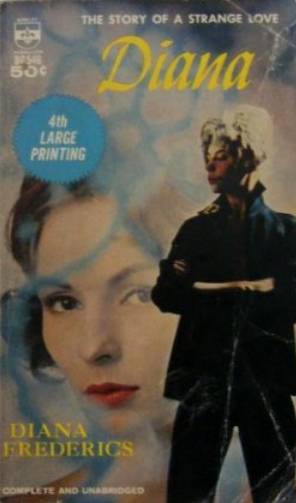Diana
Diana Frederics
This is the unusual and compelling story of Diana, a tantalizingly beautiful woman who sought love in the strange by-paths of Lesbos. Fearless and outspoken, it dares to reveal that hidden world where perfumed caresses and half-whispered endearments constitute the forbidden fruits in a Garden of Eden where men are never accepted.
This is how Diana: A Strange Autobiography was described when it was published in paperback in 1952. The original 1939 hardcover edition carried with it a Publisher’s Note: This is the autobiography of a woman who tried to be normal.
In the book, Diana is presented as the unexceptional daughter of an unexceptional plutocratic family. During adolescence, she finds herself drawn with mysterious intensity to a girl friend. The narrative follows Diana’s progress through college; a trial marriage that proves she is incapable of heterosexuality; intellectual and sexual education in Europe; and a series of lesbian relationships culminating in a final tormented triangular struggle with two other women for the individual salvation to be found in a happy couple.
In her introduction, Julie Abraham argues that Diana is not really an autobiography at all, but a deliberate synthesis of different archetypes of this confessional genre, echoing, as it does, more than a half-dozen novels. Hitting all the high and low points of the lesbian novel, the book, Abraham illustrates, offers a defense of lesbian relationships that was unprecedented in 1939 and radical for decades afterwards.
Check for it on:
Details
| Genre | Autobiographical Fiction; Pulp |
| Copyright Date | 1939 |
| Publication Date | 1961 |
| Publisher | Berkley Books |
| Format | Mass Market Paperback |
| No. of Pages | 174 |
| Notes | Berkley Medallion Book BG546 |
| Language | English |
| Rating | NotRated |
| Original Publisher | Dial Press |
| Subject | Lesbians – Fiction |
| BookID | 3035 |
